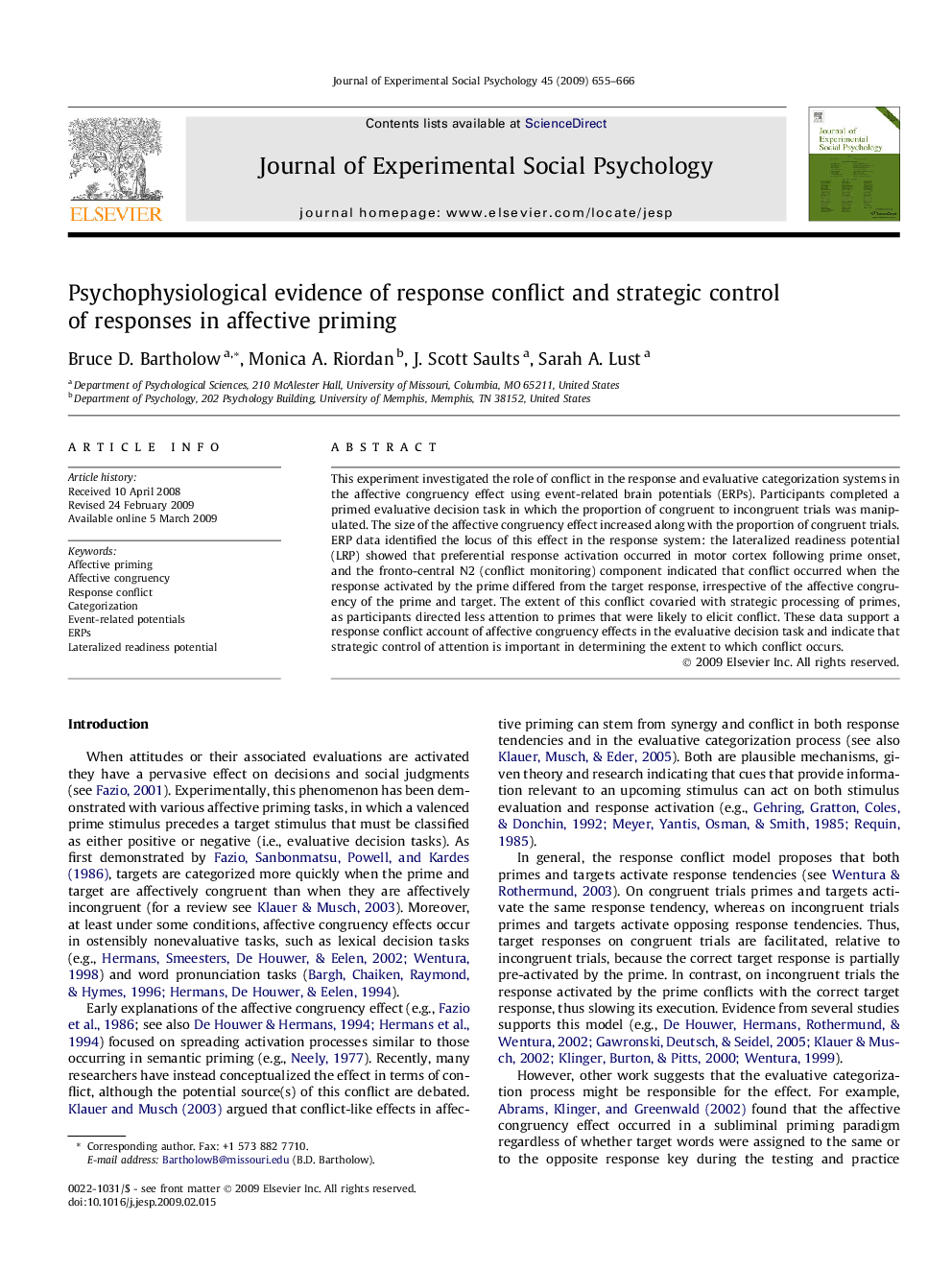| Article ID | Journal | Published Year | Pages | File Type |
|---|---|---|---|---|
| 948836 | Journal of Experimental Social Psychology | 2009 | 12 Pages |
This experiment investigated the role of conflict in the response and evaluative categorization systems in the affective congruency effect using event-related brain potentials (ERPs). Participants completed a primed evaluative decision task in which the proportion of congruent to incongruent trials was manipulated. The size of the affective congruency effect increased along with the proportion of congruent trials. ERP data identified the locus of this effect in the response system: the lateralized readiness potential (LRP) showed that preferential response activation occurred in motor cortex following prime onset, and the fronto-central N2 (conflict monitoring) component indicated that conflict occurred when the response activated by the prime differed from the target response, irrespective of the affective congruency of the prime and target. The extent of this conflict covaried with strategic processing of primes, as participants directed less attention to primes that were likely to elicit conflict. These data support a response conflict account of affective congruency effects in the evaluative decision task and indicate that strategic control of attention is important in determining the extent to which conflict occurs.
